Driving under the influence (DUI) is a serious offense in Pennsylvania, as it is in most states across the United States. Understanding the laws surrounding DUIs, particularly for first-time offenders, is crucial for anyone facing these charges or seeking to avoid them. In this blog post, we will explore Pennsylvania’s DUI laws, the penalties for first-time offenders, and potential remedies that individuals can explore with the guidance of an experienced PA criminal defense attorney, James Bonner.
Understanding Pennsylvania’s DUI Laws
Pennsylvania’s DUI laws are designed to deter individuals from driving while impaired by drugs or alcohol and protect all road users’ safety. DUI offenses are categorized based on blood alcohol concentration (BAC) and prior convictions. For first-time offenders in PA, it is essential to be aware of the specific laws and penalties that apply.
BAC Limits for First-Time Offenders
The legal limit for BAC in Pennsylvania is 0.08% for individuals aged 21 and over. The limit is lower for commercial drivers at 0.04%, while individuals under 21 must have a BAC of 0.02% or less. First-time offenders are subject to these limits and face penalties if they exceed them.
Penalties for First-Time DUI Offenders
Pennsylvania imposes various penalties on first-time DUI offenders, which can include:
- Driver’s License Suspension: A first-time DUI conviction can result in a license suspension of up to one year. However, some individuals can qualify for limited driving privileges, such as to commute to work or receive medical treatment.
- Fines: Fines for first-time DUI offenders can range from $300 to $5,000, depending on the BAC level and other circumstances surrounding the arrest.
- Probation: Probation may be ordered as part of the sentence, during which individuals must meet certain conditions, such as attending alcohol education programs or performing community service.
- Alcohol Education Programs: Sometimes, first-time offenders may be required to attend alcohol education or treatment programs to address their substance abuse issues.
- Ignition Interlock Device: Pennsylvania may require the installation of an ignition interlock device in the offender’s vehicle, which prevents the car from starting if alcohol is detected on the driver’s breath.
- Insurance Consequences: DUI convictions can lead to significantly higher insurance premiums or even the cancellation of coverage.
- Criminal Record: A DUI conviction can result in a permanent criminal record, affecting employment opportunities and other aspects of one’s life.
Remedies for First-Time DUI Offenders
Navigating the legal system after a DUI arrest can be complex. Still, there are potential remedies that individuals can explore with the help of an experienced criminal defense attorney like James Bonner:
- Legal Defenses: A skilled attorney can review the case details to identify potential legal defenses, such as improper police procedures, inaccuracies in chemical tests, or lack of probable cause for the traffic stop.
- Reduced Charges: In some cases, it may be possible to negotiate a plea deal for reduced charges, such as reckless driving, which carries fewer penalties than a DUI.
- Alternative Sentencing: Depending on the circumstances, first-time offenders may be eligible for alternative sentencing programs like Accelerated Rehabilitative Disposition (ARD), which can result in the expungement of the DUI charge upon successful completion.
- Appeals: If the initial conviction is unfair or flawed, an attorney can help file an appeal to seek a reversal or modification of the sentence.
If you have been charged with your first DUI offense in Pennsylvania, seek immediate assistance from attorney James Bonner Esq. James Bonner is an experienced lawyer who aggressively represents clients in PA DUI cases.
He takes special care to explain the process clearly so you know what to expect. With his knowledge, skill, and dedication, you can rest assured that you, your future, and your freedom are in good hands.
He has handled thousands of PA DUI cases and knows where to look to determine the best defense. To learn more and schedule a free consultation, call James Bonner, Esq. You can also reach the firm through our online contact form.


